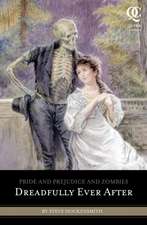Wide Sargasso Sea
Autor Jean Rhys Editat de Hilary Jenkinsen Limba Engleză Paperback – 25 apr 2001
| Toate formatele și edițiile | Preț | Express |
|---|---|---|
| Paperback (5) | 45.93 lei 23-34 zile | +13.97 lei 6-10 zile |
| Penguin Books – 6 apr 2011 | 45.93 lei 23-34 zile | +13.97 lei 6-10 zile |
| Penguin Books – 2 aug 2000 | 46.47 lei 23-34 zile | +14.89 lei 6-10 zile |
| Penguin Books – 25 apr 2001 | 47.64 lei 17-23 zile | +4.14 lei 6-10 zile |
| Penguin Books – 29 mar 2000 | 50.49 lei 3-5 săpt. | +6.18 lei 6-10 zile |
| Pearson Education – 28 aug 2001 | 83.00 lei 3-5 săpt. | |
| Hardback (1) | 89.19 lei 23-34 zile | +30.36 lei 6-10 zile |
| Penguin Books – 5 oct 2016 | 89.19 lei 23-34 zile | +30.36 lei 6-10 zile |
Preț: 47.64 lei
Nou
Puncte Express: 71
Preț estimativ în valută:
9.12€ • 9.34$ • 7.58£
9.12€ • 9.34$ • 7.58£
Carte disponibilă
Livrare economică 22-28 februarie
Livrare express 11-15 februarie pentru 14.13 lei
Preluare comenzi: 021 569.72.76
Specificații
ISBN-13: 9780140818031
ISBN-10: 0140818030
Pagini: 192
Dimensiuni: 129 x 198 x 11 mm
Greutate: 0.15 kg
Ediția:New
Editura: Penguin Books
Colecția Penguin Classics
Locul publicării:London, United Kingdom
ISBN-10: 0140818030
Pagini: 192
Dimensiuni: 129 x 198 x 11 mm
Greutate: 0.15 kg
Ediția:New
Editura: Penguin Books
Colecția Penguin Classics
Locul publicării:London, United Kingdom
Notă biografică
Jean Rhys was born Ella Gwendolen Rees Williams in Roseau, Dominica in 1890, the fourth child of William Rees Williams, a Welsh doctor, and Minna Lockhart, granddaughter of a Scotsman, James Lockhart. In 1824 Lockhart was the owner of 258 slaves and a 1200-acre estate called Geneva, in the Grand Bay area. When he died in 1837, slavery had just been abolished.
The Williams family home was in the town of Roseau, but Jean could enjoy the country pleasures of the Lockhart Estate, her father’s small Bona Vista estate, and his mountain retreat called ‘Amalia’. White Creoles (white people who were born and continue to live in the island) are generally attuned to their locality, and as early as the eighteenth century, visitors and commentators noticed that they had developed certain affinities with the Blacks who worked on the estates and in their homes.
It should be remembered, however, that as colonials and Whites, they looked up to England, and rosy images of the mother country entered their minds, garnered from books, pictures, consumer products and visitors passing through.
On the birth of the fifth Williams child in 1895, Jean began to develop a sense of being unloved by her mother. She also felt the racial tensions, the narrowness of outlook, the gossiping, the hypocrisies and pretensions of the domestic and social environment in which she was growing up.
She attended the school connected to the ‘Convent of the Faithful Virgin’ in Roseau, and was a boarder there during her parents’ absence from the island.
In September of 1907 she left Dominica to attend a girls’ school in Cambridge, England. Here she passed her A-levels and was so successful in school plays that she obtained her father’s permission to enter drama school. But after two terms at the Royal Academy of Dramatic Arts, she was withdrawn. Reports from the Academy
Said that her accent would “seriously affect her chances of success in drama” and “would only fit her for certain parts, and those perhaps few and far between”.
Instead of returning as a failure to the colony, she chose to work as a chorus girl in travelling productions of popular plays and musicals. Between 1907 and 1909 this young colonial lost all her illusions about England, and began associating it with hypocrisy, snobbishness, lack of colour, suppression of emotions and conformity.
But even when her father died, she still did not go back to Dominica. In 1910 she fell in love with an older man, an upper-class Englishman holding an important position. In due course he gave her up, and for many years she felt as rejected as Antoinette does in Wide Sargasso Sea.
After a period of frenzied bohemian living, she left England in 1919 vowing never to return. She was going to Holland to marry a Belgian she had met during the War. From this point onwards Jean Rhys lived a wandering life, with Paris as an informal ‘base’. The English novelist Ford Madox Ford encouraged her writing and became her lover while her husband Jean Lenglet was in jail for embezzlement.
By 1928, England was drawing her in again. Her marriage could not be patched up, Ford had moved on, and she began living in London with Leslie Tilden-Smith, a publisher’s reader who was supportive of her work. After her divorce from Lenglet she married Tilden-Smith. But by this time Jean Rhys was an alcoholic. During the War years she lived in English villages and in London trying to write stories, getting depressed, drinking hard, coming up in the Magistrate’s Court for drunk and disorderly behaviour, and being sent for psychiatric evaluation.
She lost contact with almost everybody except the villagers she sometimes scandalised. They would have been the last to believe that the stranger they gossiped about was a notable author. The rediscovery of this talented writer was truly one of the lucky literary ‘breaks, of the second half of the twentieth century.
The Williams family home was in the town of Roseau, but Jean could enjoy the country pleasures of the Lockhart Estate, her father’s small Bona Vista estate, and his mountain retreat called ‘Amalia’. White Creoles (white people who were born and continue to live in the island) are generally attuned to their locality, and as early as the eighteenth century, visitors and commentators noticed that they had developed certain affinities with the Blacks who worked on the estates and in their homes.
It should be remembered, however, that as colonials and Whites, they looked up to England, and rosy images of the mother country entered their minds, garnered from books, pictures, consumer products and visitors passing through.
On the birth of the fifth Williams child in 1895, Jean began to develop a sense of being unloved by her mother. She also felt the racial tensions, the narrowness of outlook, the gossiping, the hypocrisies and pretensions of the domestic and social environment in which she was growing up.
She attended the school connected to the ‘Convent of the Faithful Virgin’ in Roseau, and was a boarder there during her parents’ absence from the island.
In September of 1907 she left Dominica to attend a girls’ school in Cambridge, England. Here she passed her A-levels and was so successful in school plays that she obtained her father’s permission to enter drama school. But after two terms at the Royal Academy of Dramatic Arts, she was withdrawn. Reports from the Academy
Said that her accent would “seriously affect her chances of success in drama” and “would only fit her for certain parts, and those perhaps few and far between”.
Instead of returning as a failure to the colony, she chose to work as a chorus girl in travelling productions of popular plays and musicals. Between 1907 and 1909 this young colonial lost all her illusions about England, and began associating it with hypocrisy, snobbishness, lack of colour, suppression of emotions and conformity.
But even when her father died, she still did not go back to Dominica. In 1910 she fell in love with an older man, an upper-class Englishman holding an important position. In due course he gave her up, and for many years she felt as rejected as Antoinette does in Wide Sargasso Sea.
After a period of frenzied bohemian living, she left England in 1919 vowing never to return. She was going to Holland to marry a Belgian she had met during the War. From this point onwards Jean Rhys lived a wandering life, with Paris as an informal ‘base’. The English novelist Ford Madox Ford encouraged her writing and became her lover while her husband Jean Lenglet was in jail for embezzlement.
By 1928, England was drawing her in again. Her marriage could not be patched up, Ford had moved on, and she began living in London with Leslie Tilden-Smith, a publisher’s reader who was supportive of her work. After her divorce from Lenglet she married Tilden-Smith. But by this time Jean Rhys was an alcoholic. During the War years she lived in English villages and in London trying to write stories, getting depressed, drinking hard, coming up in the Magistrate’s Court for drunk and disorderly behaviour, and being sent for psychiatric evaluation.
She lost contact with almost everybody except the villagers she sometimes scandalised. They would have been the last to believe that the stranger they gossiped about was a notable author. The rediscovery of this talented writer was truly one of the lucky literary ‘breaks, of the second half of the twentieth century.
Recenzii
Rhys
took
one
of
the
works
of
genius
of
the
19th
Century
and
turned
it
inside-out
to
create
one
of
the
works
of
genius
of
the
20th
Century
Rhys's iconic prequel to Charlotte Brontë'sJane Eyreis rich in motifs and devices both modernist and postmodernist
Beautiful and subversive [...] the novel didn't just take inspiration from Charlotte Brontë'sJane Eyre, it illuminated and confronted it, challenged the narrative.
Wide Sargasso Seais not just a great novel, it is many brilliant books in one
Rhys's iconic prequel to Charlotte Brontë'sJane Eyreis rich in motifs and devices both modernist and postmodernist
Beautiful and subversive [...] the novel didn't just take inspiration from Charlotte Brontë'sJane Eyre, it illuminated and confronted it, challenged the narrative.
Wide Sargasso Seais not just a great novel, it is many brilliant books in one



















